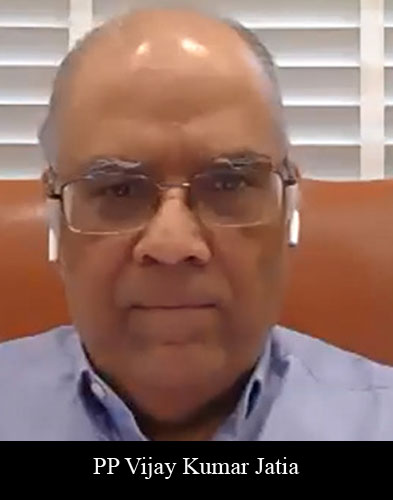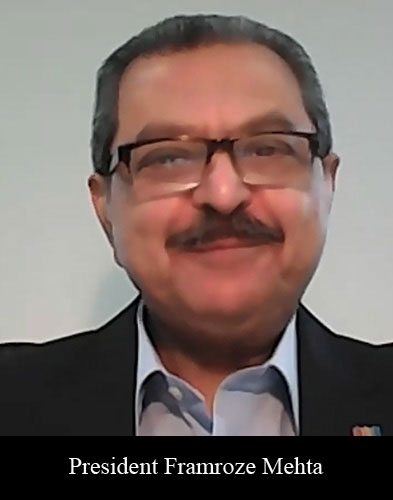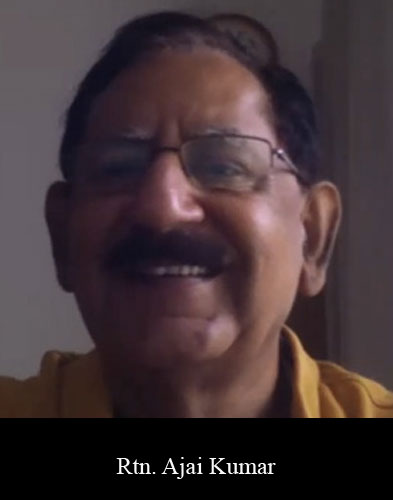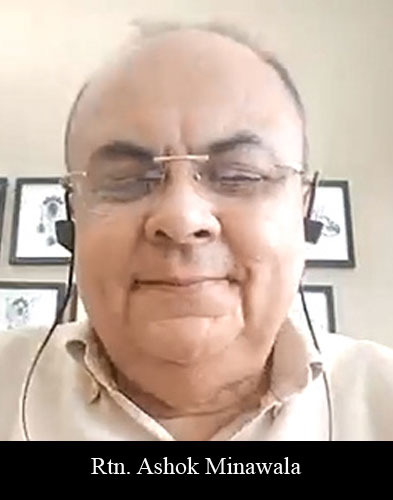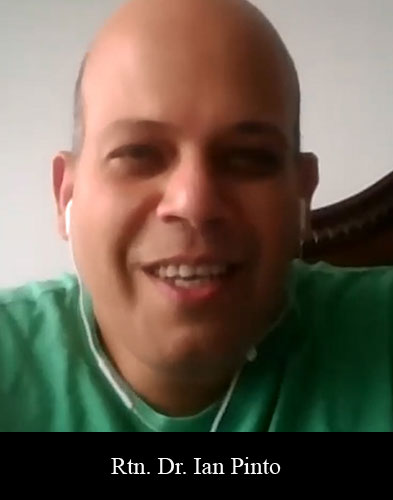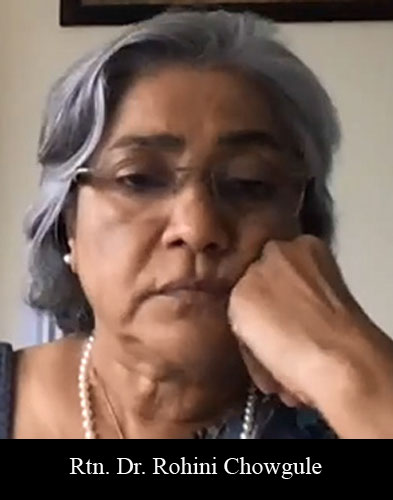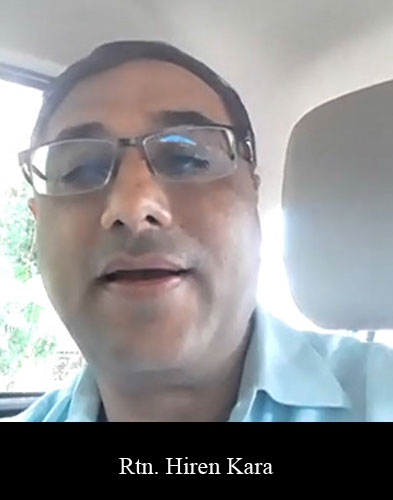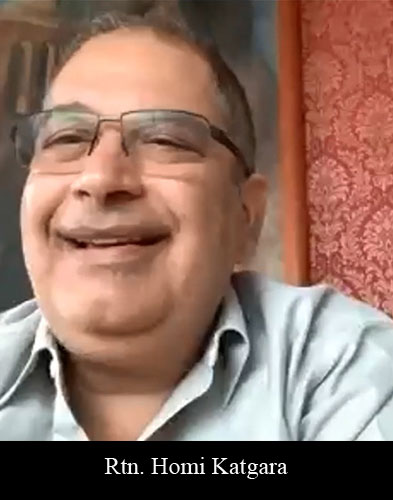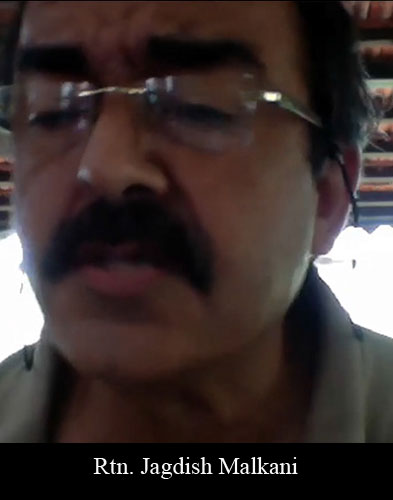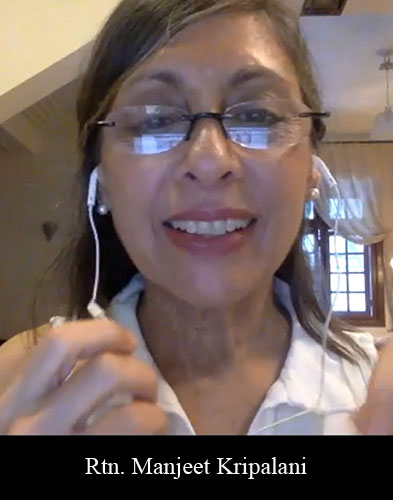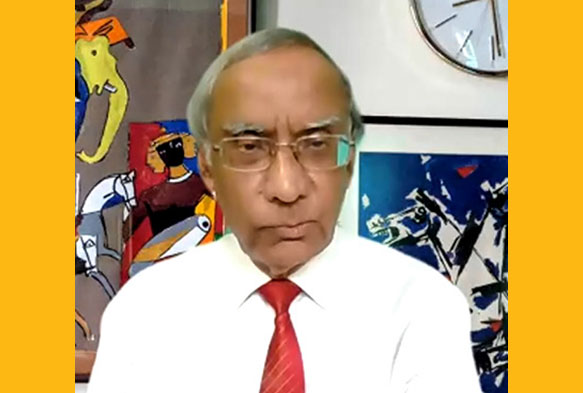
Rajiv Bhatia demystifies India’s Foreign Policy in a turbulent and fast-changing climate
IN 2017, RICHARD HAAS WROTE A WORLD IN DISARRAY: AMERICAN FOREIGN POLICY AND THE CRISIS OF THE OLD ORDER. IN IT, HE SAID THE 21ST CENTURY WAS GOING TO BE DIFFERENT FROM THE PREVIOUS ONES WHICH CONSTITUTED THE MODERN PERIOD. HE REFERRED TO MARK TWAIN’S SAYING, THAT HISTORY MAY NOT REPEAT ITSELF, IT RHYMES; SIMILAR INCIDENTS, SIMILAR EVENTS TAKES PLACE. BUT HAAS SAYS THAT IN THE COMING DECADES OF 21ST CENTURY, HISTORY MAY NOT EVEN RHYME BECAUSE THINGS WOULD BE VERY DIFFERENT.
This theory is proving somewhat correct because the past two decades opened with the blowing up of the Twin Towers, followed by big war in Afghanistan and Iraq. Then, there was the economic and financial crisis of 2008-09 and, thereafter, tremendous intensification of the US-China strategic contestation in the past decade, especially with President Xi Jinping’s revival to power.
All this happened even before Covid. Wuhan has completely dominated the world psyche today. The world is changing in a manner not expected and this is best depicted by new works of technology. We knew when work meant office, our children went to school to study, if you wanted to introduce somebody, you shook hands. Above all, we knew from class one that man is a social animal. But our lives, work, way of thinking and ways of self protection and connection adhere to a new normal.
In the last few decades, power has shifted from the West to the East. Within Asia, while there is much talk about China, there are other players too. India is one of them and therefore the power shift is of great significance to us and, especially, the elites.
Secondly, while the power is shifting, the ultimate power is not decided yet and therefore this race between the number one and the rising number two that is China has intensified. US regards China as its strategic adversary on a spectrum of issues.
There are difficulties, there are issues, and this trend, most American scholars say, is going to continue even if there is a change in the White House in a few weeks.
Thirdly, in this battle between number one and number two, there are whole set of other powers. There are major powers like Russia, Japan, Europe, then there are middle powers like Australia, South Korea, Indonesia, and others. There are small powers which are protecting their own interests keeping in mind the big competition that is going on.
It is in this context that we must note: even before Covid, the economy of many countries was slowing down – India was amongst them. After Covid, economic stress has increased significantly. Finally, beyond economy, we should also mention that technology is having a huge impact. Until Covid made its appearance, many of the things and platforms that we are talking about today were known only to a small band of people.
In this broad framework, Indian Foreign Policy indicates to us that in the past 75 years, Indian Foreign Policy has evolved through various phases. The one constant is that there is a blend of certain unseen features and also some new features or trend. This is a story from Jawaharlal Nehru to Narendra Modi. Every Prime Minister has taken interest in the conduct of the Foreign Policy as the head of diplomacy of this country.
It is also an interesting fact that three of the Finance Ministers of the country became its Prime Ministers and two of the secretaries in the Ministry of Foreign Affairs – Natwar Singh and later Jay Shankar – rose to become Foreign Ministers. When we say the South Block, the office of the PM, office of Ministry of External Affairs and, just across the road, Finance Ministry and Home Ministry, South Block represents the nerve centre of the highest echelons of India’s governance.
The culture and heritage drive South Block because some have been privileged to serve in those historic rooms where VIPs and dignitaries come, agreements are signed and historic events are taking place.
We feel it is important to let the people of India know more about foreign policy making and the mysteries of diplomacy. In that context, we can focus upon Foreign Policy of the past decade. We had the former Prime Minister, Manmohan Singh, very well regarded, in 2004, when I was serving as an ambassador in Myanmar.
In that context, if we have to look from 2014 to 2020, we have to recognise objectively that the present PM has invested heavily in terms of energy, time and diverse resources in the formulation and conduct of Foreign Policy. There is a little doubt that he has aspired for the vision that India is an emerging power with a global view and global interest. All of us as Indians have taken pride in the fact that he has travelled around the world, made new friendships, strengthened old friendships and it is clear that India’s image and reputation have been strengthened in the process, diplomatically. At the same time, there are some who feel that the Modi legacy, the assessment of it – this is not the right time. The right time will be when the chapter is ended.
Talking of India’s relations with a group of major powers. If India is an emerging power, it should start looking at how its relations are with the major powers and, undoubtedly, we have to start with the USA.
Everybody has to agree that in the past two decades, India-US relations have improved significantly in terms of exchange of visits and agreements signed. Especially in the defence, economic and political domain, it is clearly understood that for US, India is an important partner and, of course, for India, the importance of US has increased in the recent years.
On the other hand, you do have a leadership issue in the US where the approach to foreign relations are by nature transactional. While talking of India-US relations we have to perforce talk about India and China because with China emerging as a major issue of concern both in India and US, India-US relations have come even closer.
Yet, some American scholars argue that it is not that the US is chasing India to be a strategic partner or alliance at NATO. It is that Washington has to continue reading China in the correct manner and if there is convergence in that reading, then the strategic partnership between these two would remain strong.
Beyond US, Europe is also important; France, Germany, UK and European Union are important pillars of what we call as Europe today. France in the defence and technology field, Germany in the economy and trade, UK given the historic connections and EU which is emerging as the true representative of Europe.
India has tried to cultivate these four pillars but not fully successfully. There were complications because Europe came under stress for various reasons in the Trump era.
The Covid era has brought a new dynamic and there is a fresh effort in Delhi to strengthen this new relationship, look at some of the economic partnerships that have been pending for many years, and create a strategic domain which France and UK are keen on. India-Europe relationship is heading in a positive territory.
Russia is a good solid nation partner, there is no doubt that India-Russia are important to each other and Delhi is trying to keep each other in good company. Then comes Japan and we are trying to do work in with the major powers.
Then we come to neighbours, we deal with them whether you are a businessman or not. We have closer and positive relations with Bangladesh, Maldives, Sri Lanka, and we have Nepal and Pakistan with whom we have strained relationships. We have Myanmar which is important and is handled delicately. What is common here is undoubtedly the China factor. The involvement of this external power in our region has complicated life for foreign policy makers and diplomats. They know what the challenges are.
There is a challenge for China to keep India down in South Asia, of course there is a thin shadow of the cheque book that the Chinese possess and yet India, too, has its own assets. India is determined to play a leader’s and co-operative role in South Asia. Moving quickly to the extended neighbours, we have West Asia, Central Asia and we have Pacific region, in all these regions diplomacy is very active.
Indo-Pacific, the east Asia and the Indian Ocean are strategically linked; what happens there impacts here, and vice versa. This is the logical reason of the rise of China and the contestation that US, India, Japan and Australia have decided to offer. This is where a new quadrilateral diplomatic partnership is to emerge, and scholars are excited what this partnership will do in terms of contesting the less-than-friendly behaviour of China.
Africa is my subject of specialisation and is dear to me. It is clear that many people in India are not fully aware and conscious of the rising importance of Africa. It is a continent of 54 countries on their way to economic development, democracy, and integration. It is expected to play a vital role in foreign policy, and this explains why the Modi government is taking so much interest in Africa.
At the end, Latin America too is important for a country like India which has a global view and, incidentally, some of you who are economic entrepreneurs are doing very well in terms of economic trade and investments with Latin America.
So, towards the end, let me highlight a few points: India stands for multilateralism to resolve the world’s problem through larger groupings. Whether it is UN, WHO or others, all multilateral institutions have become weaker than they used to be and therefore India has come to strengthen multilateralism and India’s argument is that the only way to do this is to make sure that multilateral institutions reflect the reality of today.
We know that the UN Security Council, the five permanent members are victors of the World War II which took place several years back and that is the reason why a country like India is not a part of it, and which has all the credentials to be a part of it — this has been India’s consistent position.
Moving from multilateralism to multi polarity is significant. The point here is, and this is where we can bring China in, people are asking why are these things happening in Ladakh? Scholars have different views, but my view is that in this region, there is a clash between Beijing and Delhi. China on way to be number one wants to be immediately number one in Asia – that is their vision but India’s vision is to be part of a multipolar Asia where all countries receive equality and respect and the ability to pursue their interests. We do not see Asia in a hierarchical position and this is why the talks have no positive results.
Pakistan, there is a fundamental divergence. Pakistan has not given up on the obsession of Kashmir and India is resolute that it cannot discuss a country which follows and pursues terrorism as a policy. The present leaders are clear that ‘I cannot trust you if you are all the time out to hurt me and damage my interests’. So, while as a diplomat, I can say, ‘create communication channels’, I can understand at the same time in a totally new and unique situation where the Pakistani attempt to run talks along with terrorism is simply not acceptable to India.
To conclude, India has a complex foreign policy to run, it has the ingenuity of its diplomats but more importantly, everything depends on India’s military strength, economic abilities, technological success and the National and moral support and engagement of our people with this entire foreign policy canvas that I have tried to paint.
Foreign policy gained impetus due to globalisation and economics. Will its importance increase or decrease in the near future due to all economies being ravaged due to pandemics which are here to stay?
The answer varies from country to country. Globalisation seemed to be set for all until protectionism emerged as a force and some of these nationalistic leaders switched themselves away from the global trend. At the same time, my assessment on globalisation is that it is here to stay. May be more in the domain of technology, communication, or health. The Coronavirus found in Wuhan had a global impact. So, as a scholar of foreign policy, I do not see a country like India turning into an inward-looking country.
Do you think this government has been economic with the truth with the citizenry on China and if so, is that not short-sighted in this era of satellites and GPS where the truth would come out sooner rather than later?
Only those who are in the state craft can understand the burden and complexities of running the office as high as of the PM of India. We have to judge this government by what it is saying in the Parliament. I think one of the finest statements given by a Mr Rajnath in the Lok Sabha, on India and China issue, we have analysed it and we have found that he has put across the entire picture very well. If you read the documents carefully, we can recognise that India’s position is sound and sober. It is important to recognise that we are in a vulnerable situation and that is why it is very important how to handle these equations.
On the talks with China, they ran for 13 hours yesterday. Is that a signal that the talks are fruitful, or that they are fruitless? On the India-Africa relationship: how can we compete with China with its open chequebook for that continent?
Thirteen hours must be including interpretations and translations and surely there must be differences that must be resolved. I am sure it included lunch and dinner as well. As a former diplomat I would like to say that, ‘It is always better to talk than let the arms do the talking’. This is the age of peace and development and not of aggression. If this is accepted, I would say why 13? You talk for 26 hours as long as you get moving. About China- Africa, having been there for seven years, I do recognise your worry that if your rival has a lot more money than you have, then how do you stay in the game?
I am not despondent at all because China’s chequebook diplomacy is getting exposed in various parts of Africa. The game is being seen through. If people in India are listening to their (Africa’s) voices, then what they are saying is, ‘come and help us, train us, create employment and grow with us’. It is a collaborative thing that Africa is looking for. India is very much in the game and will hopefully win it.
What is preventing the Quad Group from coming together as a formal alliance to counter China’s belligerent intent? Clearly India is much weaker than China in economic and military power, so why are we vacillating?
Back in 2018, we concluded that Quad strength can grow in proportion to China’s behaviour and aggression to India. So, this certainly has proved correct. Today, of course, you know that there is a kind of political transition in two of the four member countries; US where elections are about to take place, Japan where a new PM is just taking over but I think we are still very much adhering to the view that the way Chinese is going about creating problems all across their periphery and beyond, the Quad will have a bright future. And because China represents not just a diplomat, political or a strategic threat, it also represents a major economic challenge. The Quad will have to develop all its dimensions. It is important for all the partners to push back and face the China challenge.

